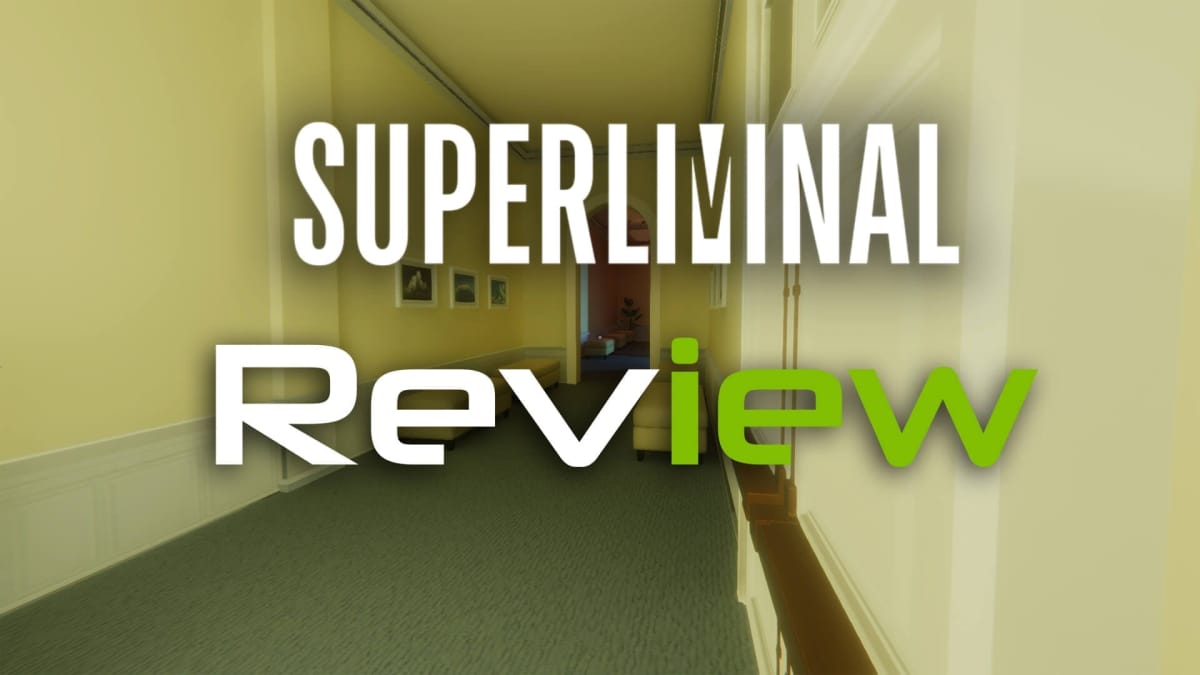We judge media based on perspective. Movies, books, tv shows, and games that we revere are seen that way because they successfully put us in the perspective of another. Games, however, offer the unique opportunity to alter that perspective as we see fit. This is exemplified best in role-playing games like Mass Effect, where the player shapes their version of Commander Shepard by making choices that affect the fate of the galaxy. The life that player lives - their childhood, friends, education, the media they consume - all play a part in the choices they make, and that’s what makes the game so enticing.
That said, perspective isn’t so much a feature in a game as it is something the player brings to the experience. Except in the case of Superliminal, which positions perspective as its core theme, literally and figuratively. Ambitious? Absolutely. But ambition doesn’t translate to success, and Superliminal’s interpretation of the concept fails to present something new in more ways than one.
Questionable Qualifications
Superliminal places you as a nameless, silent patient of Dr. Glenn Pierce, a questionably qualified psychoanalyst and founder of the Somnasculpt dream therapy program. Dr. Pierce believes that delving deep into one's psyche and exploring their dreams is a valid way to treat trauma, and you bought into the idea. At least, I think you’re supposed to have. Shortly into the experience, the dreams begin to fall apart. Office walls and testing rooms break down, and you learn you’ve accidentally gotten stuck in a dream paradox. What was meant to be a progressive therapeutic experience is going wrong, and you need to solve puzzles to make your way out.
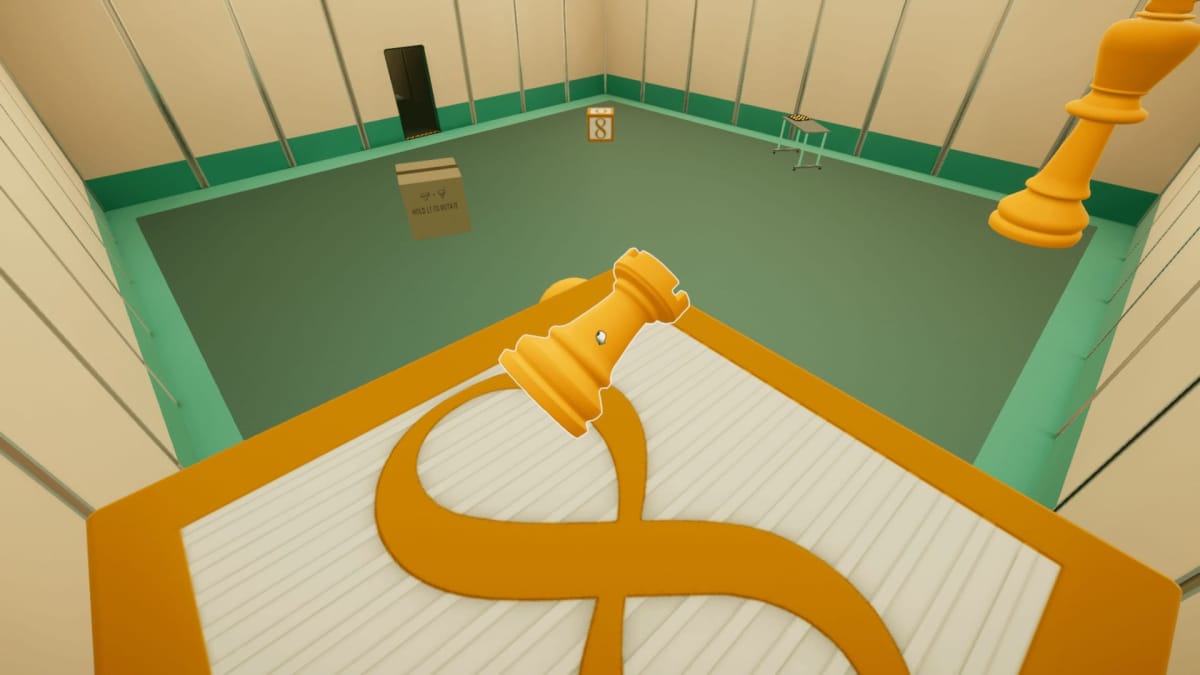
While this inciting incident is a perfectly fine premise for a puzzle game, Superliminal sets itself up as something more significant than it ever comes close to being. It readies you for a deep dive into the darker side of our brains but never provides real context as to why, or even attempts to correlate the goings-on with a therapeutic meaning. As a result, I was never quite sure what Superliminal wanted to tell me.
You see, as a silent protagonist with no assumed history, it appeared that I was entering therapy, not a game character. That I wasn’t meant to observe this character’s journey, like Chell from Portal, but that Dr. Pierce wanted me as his patient. My conclusion was mainly based on the good doctor’s dialogue, as he was consistently informing me I’ve had trauma, that I’m going through a low point, and that I’m feeling entirely worthless. I readily bought into the premise, hoping for this assumedly bold approach to a puzzle game to deliver me a plot worth experiencing. It never did. This is due, ironically, to the game’s perpetual reliance on its core theme.
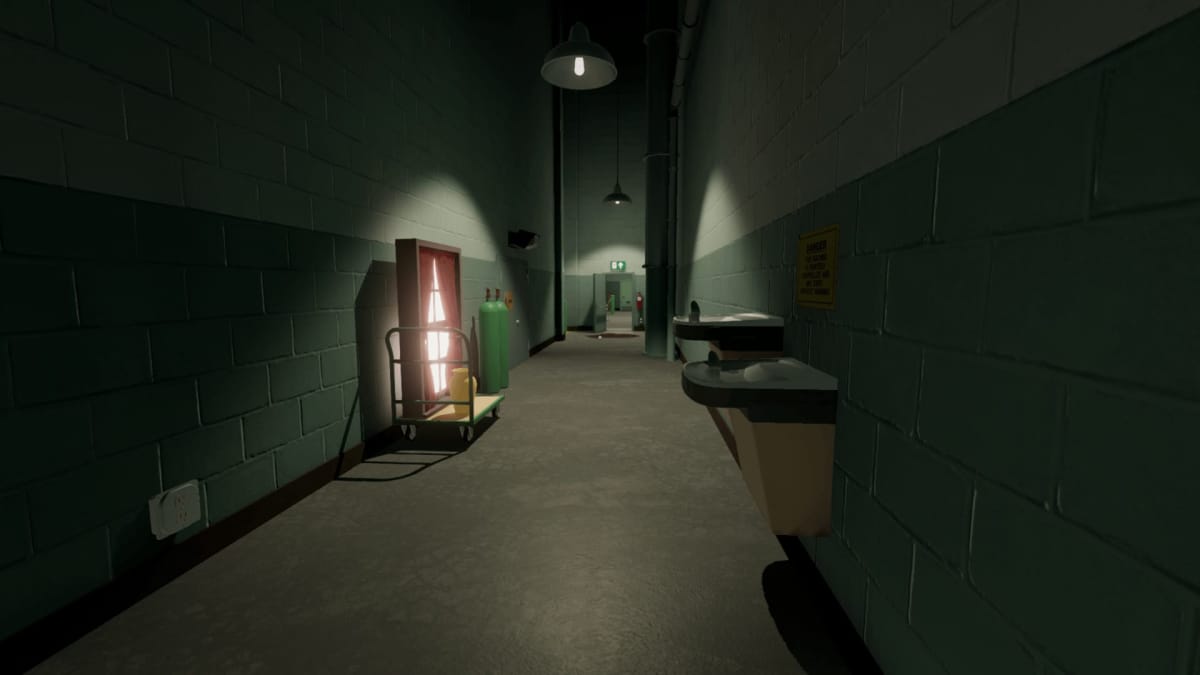
Cheating Perspective
Frame of mind, point of view, interpretation, Superliminal describes perspective in a variety of ways. When solving its many puzzles, be it through Dr. Pierce’s disembodied voice or notes left in the environment, you’re consistently reminded to look at things differently, but most problems only have one (admittedly dull) solution. An out of reach exit? Simply enlarge a cube to get there. Oh, and you’ll do that dozen of times throughout the 2-3 hour experience. It continually reminds you to “look at things from a new perspective,” but in gameplay, this, more often than not, translates to the simple scaling of an item.
Puzzle-solving consists of two mechanics: picking something up, and moving it around. The further you move the object, the larger it gets because, well, perspective. Need a massive box? Raise it up and away, then drop it. Too big? Shrink the box by moving it closer. Sometimes you’ll enlarge a slice of cake as a ramp, while other puzzles have you shrinking a door frame to scale the objects on the other side. A few more exciting puzzles ask you to angle your vision a certain way, revealing an item to assist you.
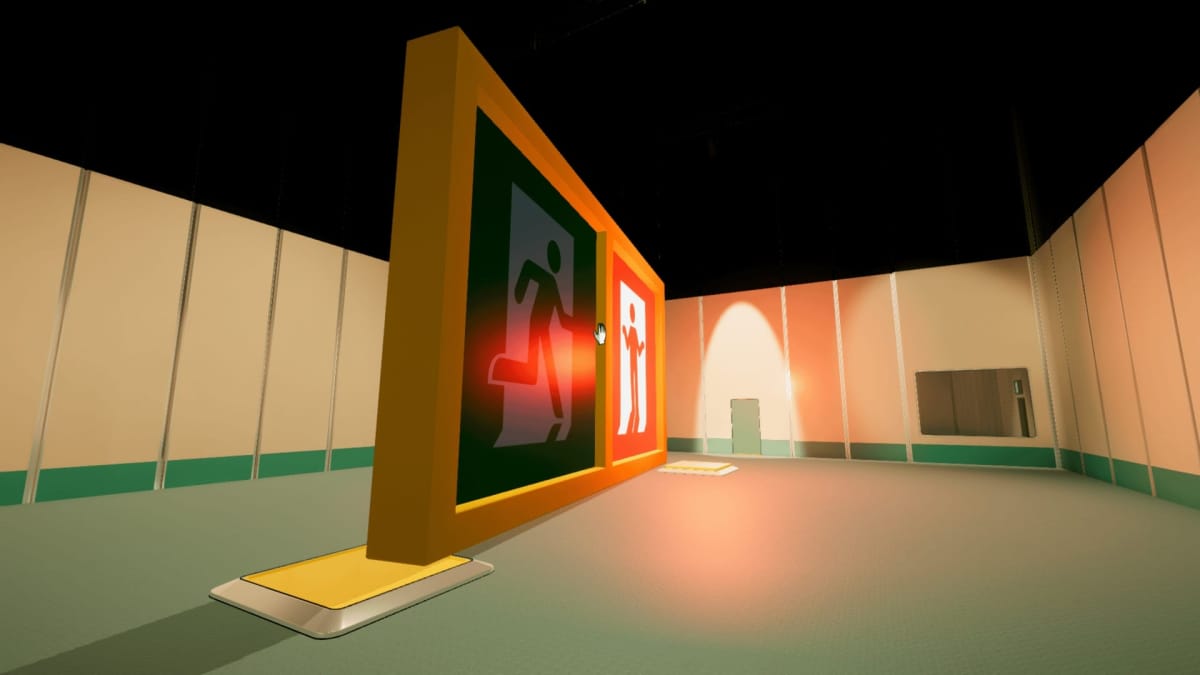
What’s shameful is how few of those interesting puzzles there are. Most consist of a box-altering mechanic or something equally simple, and that’s about it. Very few challenged me with any unique mechanics, and I was often left bored. Superliminal slightly makes up for this with its atmosphere, but only partly.
Starting areas are office-like rooms, not unlike those from The Stanley Parable. However, these blander rooms quickly gave way into testing centers and eventual behind-the-scenes machinery once the dream falls apart. Later still, you’ll come across a massive pool or a giant chess board alongside some stunning abstract scenes that are better left unspoiled.
Superliminal’s tone varies much more than its puzzle types, with Dr. Pierce consistently chiming in to lighten the mood or comment on your impending doom. The game may start sanitary and straightforward, but it eventually experiments with comedy, surprise, loneliness, depression, and even horror. That latter segment is arguably the game’s best, and one of the only times the gameplay actually ties in with the otherwise lackluster plot. Most other times, it's telling you how depressed you are, and the solution is... to enlarge a chess piece? That's the message this game has to offer me on perspective?
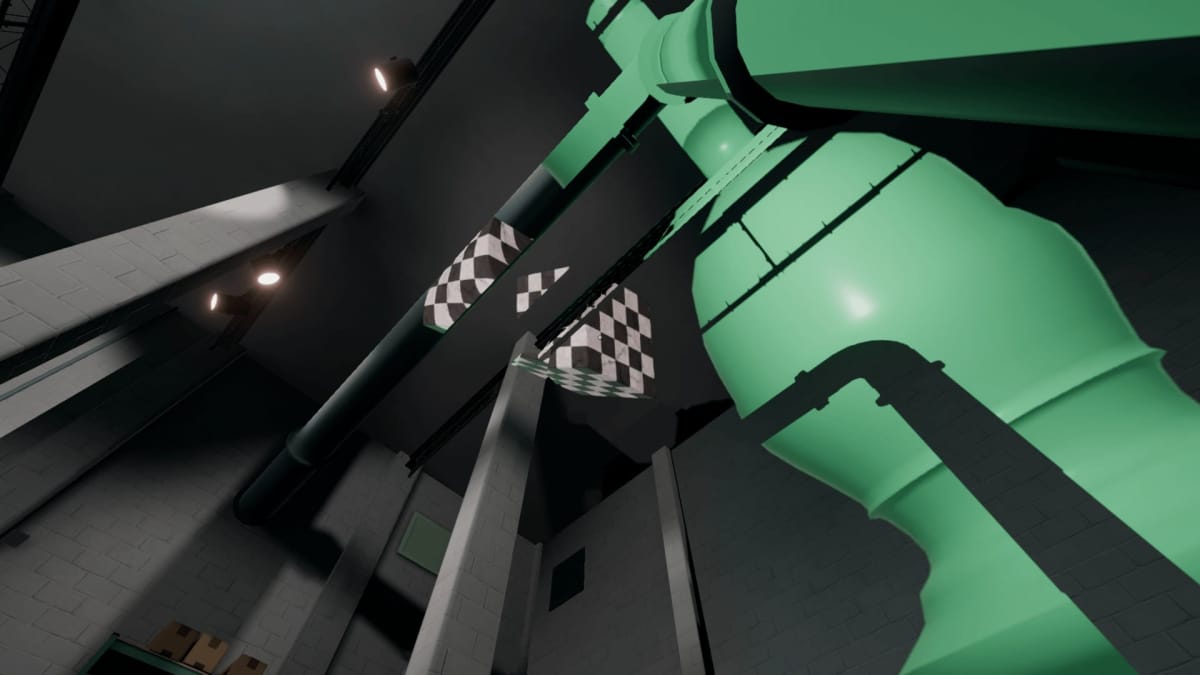
Otherwise, there are some smart quirks like every loading screen having a slight, subtle change as well as some fantastic environmental storytelling, but again, these aspects can't save a weak bigger picture.
Superliminal Review | Final Thoughts
Superliminal wants to be the next evolution of puzzle games with weird mechanics and a quirky narrator. In the beginning, it feels like the game has a shot, but in every aspect afterward, it ends up as a hollow version of not only its influences but of what this game has the potential to be.
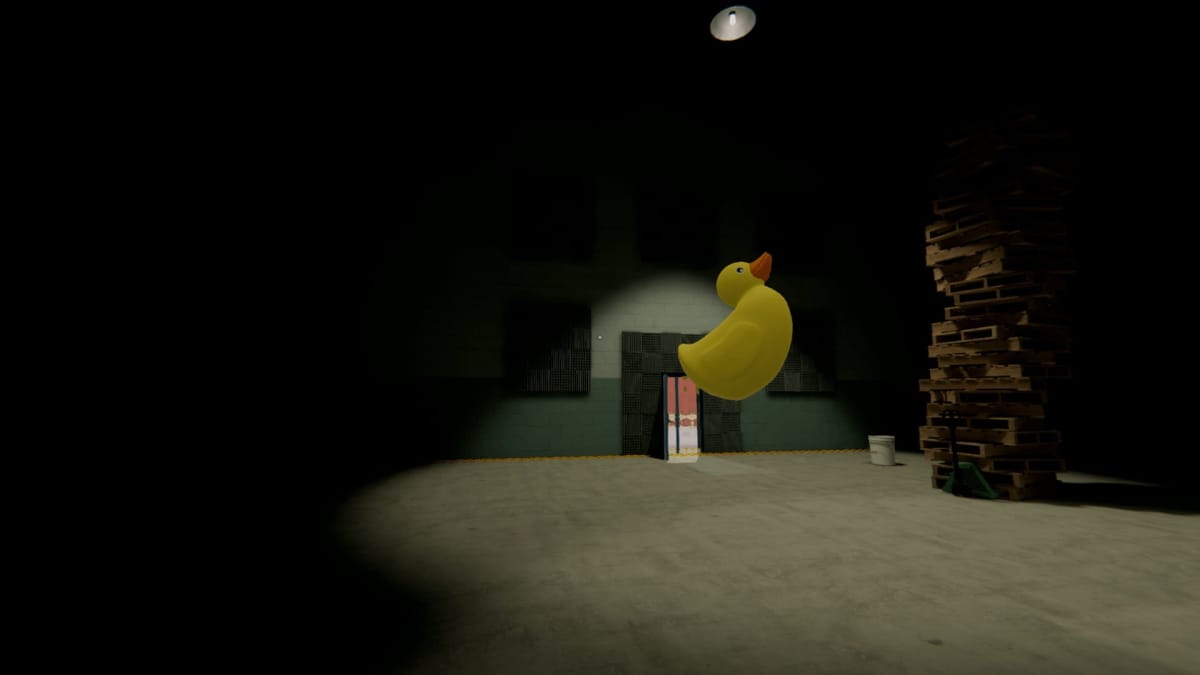
While perspective is essential, Superliminal cheats by pitching the sentiment as a more prominent feature than it is. The game consistently talks big about “taking a new perspective,” but its puzzles fail to provide anything noteworthy despite that. Plotwise, Superliminal sets itself up as a substantial dive into what makes humans work, promising a new way to look at the world, and committing to none of that. It’s a bold topic to tackle, no doubt, but Superliminal fails to justify itself or its themes and ends up as a rote, dull puzzle experience you’ll be fine to forget.
TechRaptor reviewed Superliminal on Xbox One X with a code provided by the publisher. Superliminal is also available on PlayStation 4, Nintendo Switch, and PC via the Epic Games Store.
Review Summary
Pros
- Intriguing Premise...
- Smart Quirks for the Curious
Cons
- ...That Fails to Deliver
- Repetitive Puzzles
- Wasted Potential
Have a tip, or want to point out something we missed? Leave a Comment or e-mail us at tips@techraptor.net
